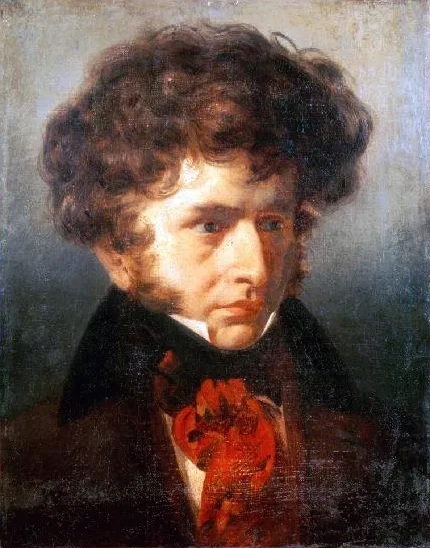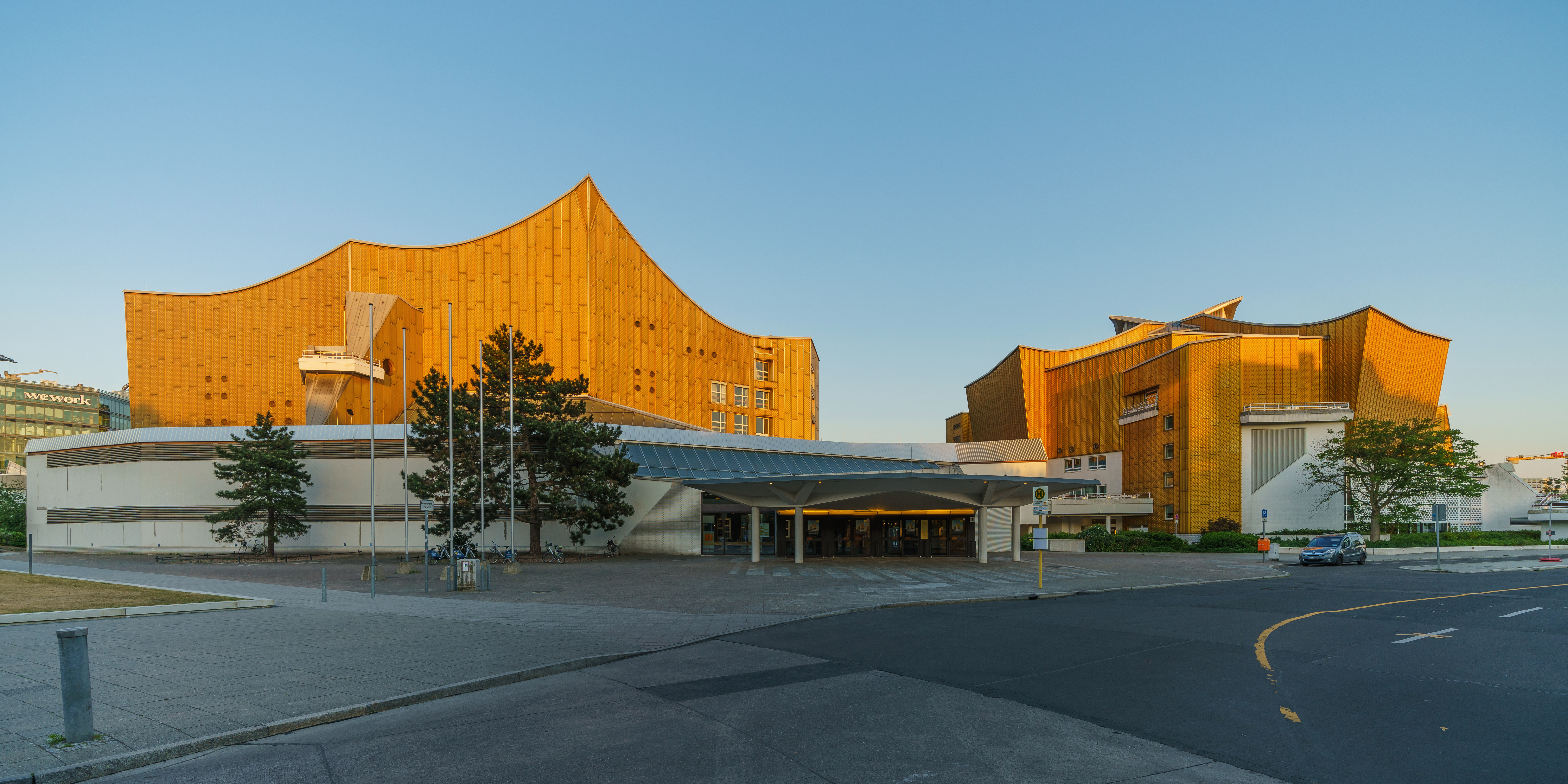|
Amihai Grosz
Amihai Grosz (born in 1979 in Jerusalem) is an Israeli violist. From 1995 to 2009, he was the violist with the Jerusalem Quartet. Since 2010, Grosz has been the Principal Violist of the Berlin Philharmonic. Education Grosz began to play the violin at age 5 before switching to the viola at age 11. His viola teachers were David Chen in Jerusalem, Tabea Zimmermann in Frankfurt and Berlin, and, in Tel Aviv, Haim Taub, who had a formative influence on him. Career In 1995, Grosz was a founding member of the Jerusalem Quartet, playing with them until 2009. During his time with the Quartet, they signed a recording contract with Harmonia Mundi. In 2009, they won the ECHO Klassik Chamber Music Award for Schubert's String Quartet No. 14 "Death and the Maiden". Their recording of two Haydn string quartets received a Diapason d'Or de l'Année 2009 and won the 2010 BBC Music Magazine Chamber Award. In 1996, Grosz won first prize at the Brown-Roger Siegel Competition. In ... [...More Info...] [...Related Items...] OR: [Wikipedia] [Google] [Baidu] |
Violist
; german: Bratsche , alt=Viola shown from the front and the side , image=Bratsche.jpg , caption= , background=string , hornbostel_sachs=321.322-71 , hornbostel_sachs_desc=Composite chordophone sounded by a bow , range= , related= *Violin family (violin, cello, double bass) * List of violists , articles= , sound sample = The viola ( , also , ) is a string instrument that is bowed, plucked, or played with varying techniques. Slightly larger than a violin, it has a lower and deeper sound. Since the 18th century, it has been the middle or alto voice of the violin family, between the violin (which is tuned a perfect fifth above) and the cello (which is tuned an octave below). The strings from low to high are typically tuned to C3, G3, D4, and A4. In the past, the viola varied in size and style, as did its names. The word viola originates from the Italian language. The Italians often used the term viola da braccio meaning literally: 'of the arm'. "Brazzo" was another Italian w ... [...More Info...] [...Related Items...] OR: [Wikipedia] [Google] [Baidu] |
Diapason D%27Or
The Diapason d'Or (French for "Golden Tuning Fork") is a recommendation of outstanding (mostly) classical music recordings given by reviewers of '' Diapason'' magazine in France, broadly equivalent to "Editor's Choice", "Disc of the Month" in the British '' Gramophone'' magazine. The Diapason d'Or de l'Année (; en, "Golden Tuning Fork of the Year") is a more prestigious award, decided by a jury comprising critics from ''Diapason'' and broadcasters from France Musique, and is comparable to the United Kingdom's Gramophone Awards, associated with the ''Gramophone'' magazine. __TOC__ Diapason d'Or de l'année 2007 * Philippe Jaroussky: Vivaldi Opera Arias. Jean-Christophe Spinosi, Ensemble Matheus. Virgin Classics Diapason d'Or de l'année 2008 * Marc-André Hamelin: Charles-Valentin Alkan, Concerto for solo piano; Troisième recueil de chants. Hyperion Records * Jean-Guihen Queyras J. S. Bach, Cello Suites. Harmonia Mundi * Masaaki Suzuki: J. S. Bach, Mass in B minor, Peter ... [...More Info...] [...Related Items...] OR: [Wikipedia] [Google] [Baidu] |
Daniel Barenboim
Daniel Barenboim (; in he, דניאל בארנבוים, born 15 November 1942) is an Argentine-born classical pianist and conductor based in Berlin. He has been since 1992 General Music Director of the Berlin State Opera and "Staatskapellmeister" of its orchestra, the Staatskapelle Berlin. The current general music director of the Berlin State Opera and the Staatskapelle Berlin, Barenboim previously served as Music Director of the Chicago Symphony Orchestra, the Orchestre de Paris and La Scala in Milan. Barenboim is known for his work with the West–Eastern Divan Orchestra, a Seville-based orchestra of young Arab and Israeli musicians, and as a resolute critic of the Israeli occupation of Palestinian territories. Barenboim has received many awards and prizes, including seven Grammy awards, an honorary Knight Commander of the Order of the British Empire, France's Légion d'honneur both as a Commander and Grand Officier, and the German Großes Bundesverdienstkreuz mit S ... [...More Info...] [...Related Items...] OR: [Wikipedia] [Google] [Baidu] |
Emanuel Krivine
Emmanuel Krivine (born 7 May 1947, Grenoble) is a French conductor. Biography The son of a Polish mother and a Russian father, Krivine studied the violin as a youth. He was a winner of the ''Premier Prix'' at the Paris Conservatoire, at age 16. He later studied at the Queen Elisabeth School in Brussels. He stopped playing the violin after a car accident in 1981. Inspired by a meeting with Karl Böhm, Krivine began to develop an interest in conducting. He was principal guest conductor of the Orchestre Philharmonique de Radio France from 1976 to 1983. From 1987 to 2000, he was music director of the Orchestre National de Lyon. He has also served as music director of the Orchestre Français des Jeunes for 11 years. In 2004, Krivine established the orchestra La Chambre Philharmonique. In 2006, he became music director of the Luxembourg Philharmonic Orchestra (OPL), with an initial contract of 3 years, after becoming the orchestra's principal guest conductor in 2002. In May ... [...More Info...] [...Related Items...] OR: [Wikipedia] [Google] [Baidu] |
Harold En Italie
''Harold en Italie,'' ''symphonie avec un alto principal'' (English: ''Harold in Italy,'' ''symphony with viola obbligato''), as the manuscript calls and describes it, is a four-movement orchestral work by Hector Berlioz, his Opus 16, H. 68, written in 1834. Throughout, the unusual viola part represents the titular protagonist, without casting the form as a concerto. The movements have these titles, alluding to a programme: *1. ''Harold in the mountains'' *2. ''March of the pilgrims'' *3. ''Serenade of an Abruzzo mountaineer'' *4. ''Orgy of bandits'' Creation The Italian composer Niccolò Paganini encouraged Hector Berlioz to write '. The two first met after a concert of Berlioz's works conducted by Narcisse Girard on 22 December 1833, three years after the premiere of Berlioz's ''Symphonie fantastique''. According to Berlioz' '' Memoires'', Paganini had acquired a "superb viola", a Stradivarius (the so-called "Paganini-Mendelssohn" ) — "But I have no suitable music. Would ... [...More Info...] [...Related Items...] OR: [Wikipedia] [Google] [Baidu] |
Hector Berlioz
In Greek mythology, Hector (; grc, Ἕκτωρ, Hektōr, label=none, ) is a character in Homer's Iliad. He was a Trojan prince and the greatest warrior for Troy during the Trojan War. Hector led the Trojans and their allies in the defense of Troy, killing countless Greek warriors. He was ultimately killed in single combat by Achilles, who later dragged his dead body around the city of Troy behind his chariot. Etymology In Greek, is a derivative of the verb ἔχειν ''ékhein'', archaic form * grc, ἕχειν, hékhein, label=none ('to have' or 'to hold'), from Proto-Indo-European *'' seɡ́ʰ-'' ('to hold'). , or as found in Aeolic poetry, is also an epithet of Zeus in his capacity as 'he who holds verything together. Hector's name could thus be taken to mean 'holding fast'. Description Hector was described by the chronicler Malalas in his account of the ''Chronography'' as "dark-skinned, tall, very stoutly built, strong, good nose, wooly-haired, good beard, s ... [...More Info...] [...Related Items...] OR: [Wikipedia] [Google] [Baidu] |
Philharmonie Berlin
The Berliner Philharmonie () is a concert hall in Berlin, Germany, and home to the Berlin Philharmonic Orchestra. The Philharmonie lies on the south edge of the city's Tiergarten and just west of the former Berlin Wall. The Philharmonie is on Herbert-von-Karajan-Straße, named for the orchestra's longest-serving principal conductor. The building forms part of the Kulturforum complex of cultural institutions close to Potsdamer Platz. The Philharmonie consists of two venues, the Grand Hall (''Großer Saal'') with 2,440 seats and the Chamber Music Hall (''Kammermusiksaal'') with 1,180 seats. Though conceived together, the smaller hall was opened in the 1980s, some twenty years after the main building. History Hans Scharoun designed the building, which was constructed over the years 1960–1963. It opened on 15 October 1963 with Herbert von Karajan conducting Beethoven's 9th Symphony. It was built to replace the old Philharmonie, destroyed by British bombers on 30 January 1 ... [...More Info...] [...Related Items...] OR: [Wikipedia] [Google] [Baidu] |
Luciano Berio
Luciano Berio (24 October 1925 – 27 May 2003) was an Italian composer noted for his experimental work (in particular his 1968 composition ''Sinfonia'' and his series of virtuosic solo pieces titled '' Sequenza''), and for his pioneering work in electronic music. His early work was influenced by Igor Stravinsky and experiments with serial and electronic techniques, while his later works explore indeterminacy and the use of spoken texts as the basic material for composition. Biography Berio was born in Oneglia (now part of Imperia), on the Ligurian coast of Italy. He was taught piano by his father and grandfather, who were both organists. During World War II, he was conscripted into the army, but on his first day, he injured his hand while learning how a gun worked and spent time in a military hospital. Following the war, Berio studied at the Milan Conservatory under Giulio Cesare Paribeni and Giorgio Federico Ghedini. He was unable to continue studying the piano beca ... [...More Info...] [...Related Items...] OR: [Wikipedia] [Google] [Baidu] |
Omer Meir Wellber
Omer Meir Wellber (Hebrew: עומר מאיר ולבר; born 28 October 1981, Beersheba) is an Israeli conductor and composer. Biography Wellber began musical studies at age 5, on accordion and piano. He became a composition student of Tania Taler at age 9. He attended the music conversatory in Be'er Sheva, and graduated from there in 1999. He subsequently studied composition with Michael Wolpe, and continued studies on a scholarship from the American-Israel Cultural Foundation to continue his studies with Eugene Zirlin at the Jerusalem Music Academy and in the Mendi Rodan Programme. His compositions include: * Suite for String Orchestra, Bassoon and Clarinet No. 1 * Mandolin Concerto * Music for Ten Instruments * Oboe Quintet (''The Last Leaf'') * Viola Concerto He is Music Director of the Volksoper Wien and Music Director of the Teatro Massimo Palermo and Artistic Director of the Toscanini Festival. He was First Guest Conductor of the Semperoper Dresden until 2022 and Chief C ... [...More Info...] [...Related Items...] OR: [Wikipedia] [Google] [Baidu] |
Aviv Competition
Aviv ( he, אביב) means "barley ripening", and by extension "spring season" in Hebrew. It is also used as a given name, surname, and place name, as in Tel Aviv. The first month of the year is called the month of Aviv in the Pentateuch. The month is called Nisan in the book of Esther, and in subsequent post-exilic history up to the present day. These names are sometimes used interchangeably, although Aviv refers to the three month season, and Nisan is called the "first month of Aviv." Meanings *The basic meaning of the word ''aviv'' is the stage in the growth of grain when the seeds have reached full size and are filled with starch, but have not dried yet. During the plague of hail (Exodus ), the barley was said to be n the''aviv'' tageand the flax n the''giv`ol''. This resulted in their destruction. *The month in the Hebrew calendar when the barley has reached or passed this stage ( ) is called ''Aviv'', or the "month of the ''aviv''", which is the biblical lunar new year. ... [...More Info...] [...Related Items...] OR: [Wikipedia] [Google] [Baidu] |






